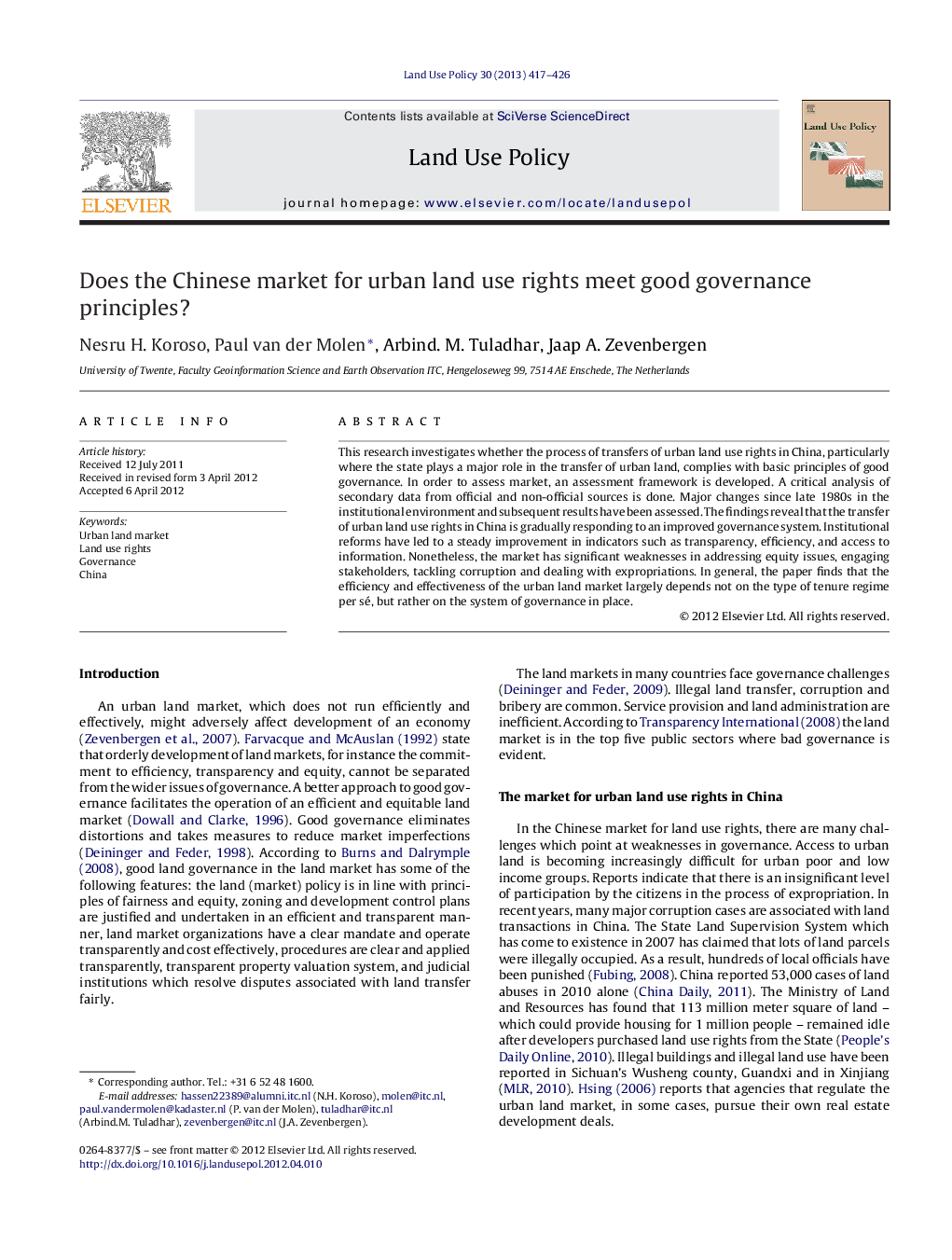| Article ID | Journal | Published Year | Pages | File Type |
|---|---|---|---|---|
| 93004 | Land Use Policy | 2013 | 10 Pages |
This research investigates whether the process of transfers of urban land use rights in China, particularly where the state plays a major role in the transfer of urban land, complies with basic principles of good governance. In order to assess market, an assessment framework is developed. A critical analysis of secondary data from official and non-official sources is done. Major changes since late 1980s in the institutional environment and subsequent results have been assessed. The findings reveal that the transfer of urban land use rights in China is gradually responding to an improved governance system. Institutional reforms have led to a steady improvement in indicators such as transparency, efficiency, and access to information. Nonetheless, the market has significant weaknesses in addressing equity issues, engaging stakeholders, tackling corruption and dealing with expropriations. In general, the paper finds that the efficiency and effectiveness of the urban land market largely depends not on the type of tenure regime per sé, but rather on the system of governance in place.
► Based on existing data sources, this paper analyses the performance of the market for urban land use rights in China. ► The assessment framework is based on governance principles like equity, participation, access to information, efficiency, and transparency. ► The result is that the market needs improvements regarding governance principles. ► However, a positive impact of the efforts of the government to improve can be observed.
